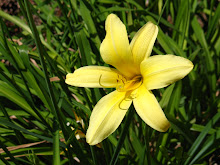1. Shahadah: Worship God (Allah) alone. (Islam)
This is “the Muslim profession of faith: ‘There is no god but Allah; Muhammad is the prophet of Allah.’… It must be recited by every Muslim at least once in a lifetime, aloud, correctly, and purposively, with a full understanding of its meaning and with an assent of the heart.” (source) However, most Muslims say this prayer everyday. In Arabic, Shahadah means “testimony.” (source)
2. Salah: Pray 5 times a day. (Islam)
“Before prayer, the body must be purified by water, or sand if water is not available.” (source) “Prayers are said at dawn, noon, mid-afternoon, sunset and nightfall, and thus determine the rhythm of the entire day. Although it is preferable to worship together in a mosque, a Muslim may pray almost anywhere, such as in fields, offices, factories and universities. Visitors to the Muslim world are struck by the centrality of prayers in daily life.” (source) A usual prayer goes like this: “Praise be to God, Lord of the Universe!, The compassionate, the Merciful, King of the Day of Judgment!. You alone we worship, and to you alone we turn for help. Guide us to the straight path, the path of those whom You have favored, not of those who have incurred Your wrath, nor of those who have gone astray.” (source) Muslims saying the prayers kneel on their prayer rugs, facing Mecca. If they are already in Mecca, they face the Kabbah. Some Muslims even build their houses to face Mecca!
3. Zakah: Give regularly to charity. (Islam)
“Zakah is to be paid once a year on savings at the rate of two and a half percent. This rate applies to cash, bank savings and gold and silver jewelry. The rate of cattle and agricultural produce is different. Payment of Zakah is a form of worship and its main importance lies in the fact that it fosters in us the qualities of sacrifice and rids us of selfishness and greed.” (source) This money is then distributed to different classes of Muslims, depending on needs. For example, some is given to Muslims who are poor, prisoners of war (to liberate them), those who need money to spread the faith, those who collect the Zakah, and those in debt. (source)
4. Sawm: Fast for 30 days during the period of Ramadan. (The holy month of Islam.) (Islam)
“When the night comes, people wait for a signal marking the end of Sawm for that specific day. This is marked by a gunshot…calling from the mosques; and in modern times, through TV and radio. The first thing all Muslims do is drink some water, then a traditional meal called iftar is eaten, where eating together with other people is considered very important. During the iftar, streets are totally empty, and all families are gathered in the houses.” (source) If a Muslim breaks the fast one day, he must make up for that day after Sawm.
5. Hajj: Make a pilgrimage to Mecca at least once in your life. (Islam)
The Muslim must be pure before Allah, then he says a prayer: “"Here I am, O God, at Thy Command! Here I am at Thy Command! Thou art without associate; Here I am at Thy Command! Thine are praise and grace and dominion! Thou art without associate." (source)
The pilgrim enters the Holy Mosque at Mecca, right foot first, and recites the prayer: "In the name of Allah, may peace and blessings be upon the Messenger of Allah. Oh Allah, forgive me my sins and open to me the doors of Your mercy. I seek refuge in Allah the Almighty and in His Eminent Face and in His Eternal Dominion from the accursed Satan." [Then] the pilgrim performs the tawaf. This is a counter-clockwise procession which circles”(source) the Kabah, (meaning ‘the cube,’) a black box built by Abraham and Ishmael. In legend, it holds the power of 360 genes. (Thompson)
“Approximately two million Muslims went [on the pilgrimage to Mecca] in 1999, of which about one million were from Saudi Arabia, and 6,000 were from the U.S.
Council on American-Islamic Relations estimated in 2006 that ‘some 10,000 American Muslims go on Hajj each year.’ The number of American pilgrims is increasing yearly. Followers of Islam who cannot go on a Hajj because of ill health or lack of money are excused from the obligation." (source)
Works Cited
Islam-NBC News Video
Thompson, Linwood. High School Level—World History: The Fertile Crescent to the American Revolution-The Rise of Islam. Chantily, VA. 1997.
Muslims worshipping at the Ka'bah

No comments:
Post a Comment